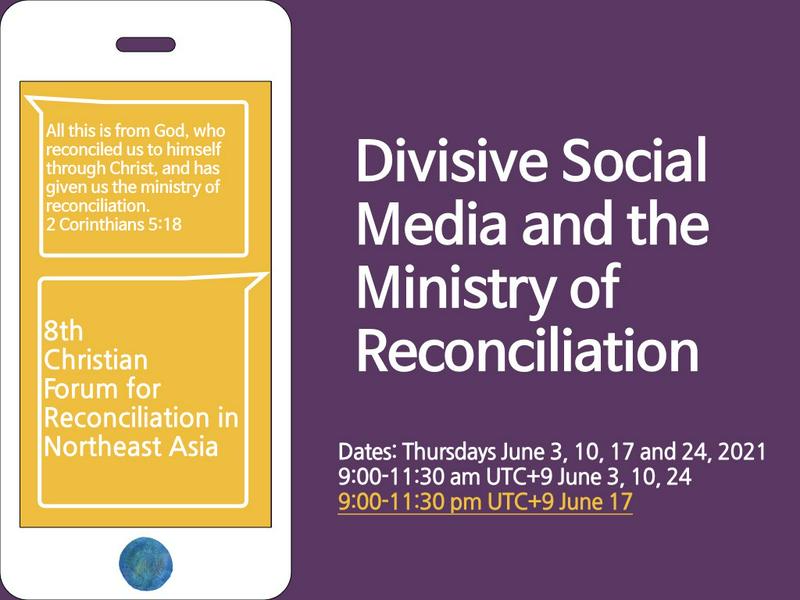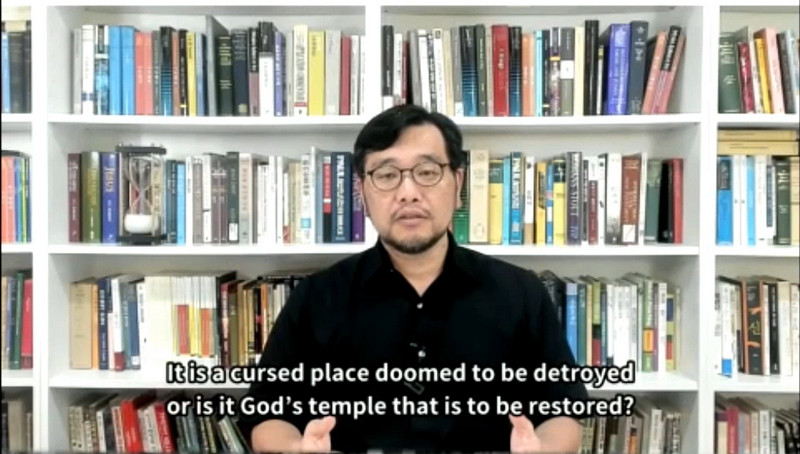The eighth Christian Forum for Reconciliation in Northeast Asia kicked off virtually on Wednesday, aiming to "address social media divisiveness" during the pandemic.
Initiated by Duke Divinity School's Center for Reconciliation, Mennonite Central Committee, colleges and institutions in Northeast Asia, the forum is held annually. The seventh forum went virtual for the first time due to COVID-19, focusing on "the ministry of reconciliation in a time of Xenophobia, rising hostility, and COVID-19."
The forum adopts the phrase "Word Made Flesh", examining the three critical dimensions that it contains: theological ("the Word"), contextual ("became flesh"), and practical ("and dwelt among us"), according to 2 Corinthians 5:18.
Featuring the overarching theme of "Divisive Social Media and the Ministry of Reconciliation," this year's forum is divided into four Thursdays during the month of June.
To explain the theme, the host released the Kairos statement, "During the pandemic, as people are spending more time online, the world is becoming ever more divided. Social media plays a critical role in the divides through carefully crafted algorithms that can manipulate minds. The call for the ministry of reconciliation is more urgent than ever. The Forum this year aims to address social media divisiveness."
In the opening session, Sung Min Chun, academic dean and associate professor of Worldview and Old Testament Studies of the Vancouver Institute for Evangelical Worldview, gave a lecture titled, "New Creation: God's New Creation and Social Media."
Chun put forward the creation-oriented theology or worldview to deal with the social media issue. When it comes to social media, the initial ideas that come to our minds might include "addiction," "manipulation," "self-indulgence," "polarization," and "fake news." A recent Netflix documentary, titled "Social Dilemma", described the bad reputation of social media that may harm us and the next generations, but he preferred to reclaim social media as "God's good creation."
Quoting Albert Marten Wolter's book, Creation Regained, he stated that creation did not remain a static quantity and kept developing. As creation was unfolding, God called us to "participate in the ongoing creational work of God, to be God's helper in executing to the end the blueprint for his masterpiece."
As to the Fall, it had its limits, while the faithful God upholds the "created order despite the ravages of sin." He continued, "Human culture and civilization are unfolding of the potential of creation." To illustrate this, Chun declared that "the sun, the moon, and the stars" in Genesis 1:14-18 that were worshipped as gods in the ancient context "are still pictured as God's creation" that praise and worship God.
Applying the creational account to social media, he said, "The story that social media creates is threatening in that it can function as an alternative story, but social media can be reclaimed, once being dethroned, as God's creation."
"Dethroning and reclaiming are two key ideas that we should bear in mind when thinking of social media… We, however, probably still need to be more specific. Do social media really have creational values? I will discuss three points. First, they are relatively egalitarian; second, they connect people and expand their horizons of experiences; third, they are to be filled, subdued, worked on and taken care of as other 'lands' of creation are to be," he concluded.
About 70 Christians from the United States, Canada, mainland China, Hong Kong, Taiwan, Japan, and Korea attended the opening program.













